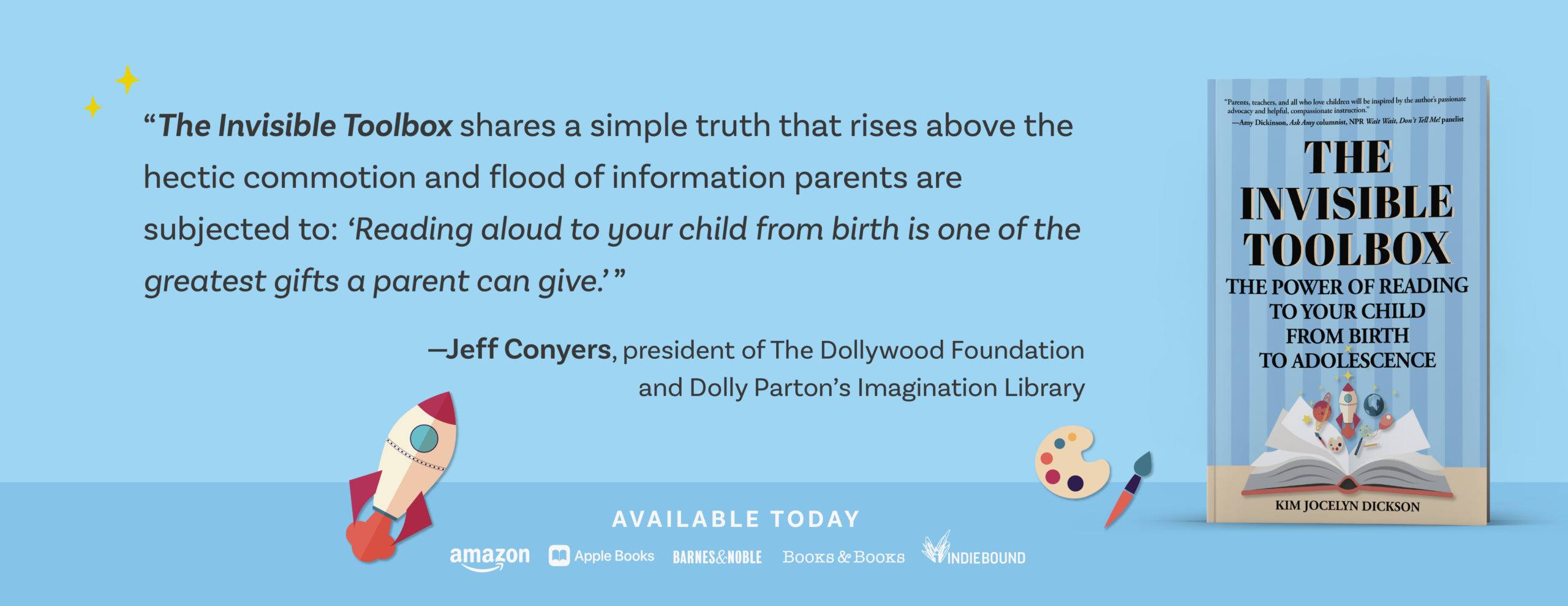Your baby has found their walking legs, and now—full of their own power and personal agency—sitting and looking at a book with you just doesn’t happen. They are on the move. Staying stationary and listening to a story? Yeah, right.
“I try to read to him, but he scoots off my lap and starts playing instead. Now what?”
This is a fairly common lament that I hear from parents, but it’s easily dealt with. Your little one doesn’t have to be on your lap or next to your side to benefit from your reading aloud to them. I’ll explain why in a moment and also share some tips for how to get around this.
But first, I want to remind you why it’s important to begin reading to your child from the beginning.
When you read to your baby you’re gifting them with tools they will use forever. One gift is that reading a story trains your child to pay attention. Some may balk at the word ‘train,’ but the fact is the ability to pay attention is a life skill that must be practiced in order to be learned. It happens, ideally, on the lap of a parent, and whether it’s taught—or not— will have long-ranging consequences for your child.
Along with learning to pay attention, your child also learns that being read to is a rewarding experience. You will have created buy-in for listening to a story and your child will likely eagerly look forward to it.
However, regardless of when you started reading to your child, there’s no need to worry when they won’t sit still for it.

Here are 3 simple tips for reading to that busy body:
1. Establish a read-aloud routine to match your child’s rhythm.
It’s easiest to encourage on-lap story time when your child’s energy level is not in high gear. When my son was a toddler we had two regular daily story times. Right after his bath and just before bedtime was perfect because he was already in wind-down mode. The other time was just after a nap when he was just re-awakening to the world. A bottle, a cuddle, a story or two, and then he was back in business.
2. Keep an eye out for a window of opportunity when you know your child needs a break.
You know as well as I do that there are moments when you’ve both just had it. When your little one is exhausted, but not yet ready for a nap—and you may be too. Grabbing a picture book or a book of nursery rhymes and settling down for a few minutes on the sofa or your favorite comfy chair may be just the thing to help them—and you—recharge. I always found these moments of downtime to be a welcome pause. Your child will too.
3. Read to that busy mover anyway.
Some children are simply wired to move more than others. Maybe your child simply won’t sit still long enough to listen to an entire story. No worries. They may prefer sitting on the floor playing with Thomas the Tank Engine. Let them be. Read to them anyway. They can hear you.
Here’s the secret to why reading to your child is beneficial, even if they aren’t sitting by your side or on your lap while you’re doing it. Your child will pick up on your feelings about what you’re doing. If you are enjoying the story—or at least the reading of it, and sometimes we really do have to work at that by having some fun doing voices—your child will absorb that. They will be listening to you even if they aren’t looking at the pictures. They may even circle back to check in and then return to their play a few times.
The key to reading to that active child of yours is simply to relax and have fun. Enjoy that story, regardless of whether you have a rapt audience sitting on your lap. Because if you do, you can be sure your little mover will too.





